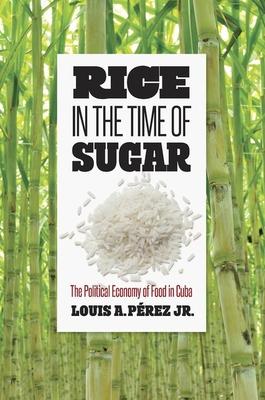
Book
Rice in the Time of Sugar: The Political Economy of Food in Cuba
(Write a Review)
Paperback
$32.50
Cuban efforts to diversify the economy through expanded rice production were met with keen resistance by U.S. rice producers, who were as reliant on the Cuban market as sugar growers were on the U.S. market. U.S. growers prepared to retaliate by cutting the sugar quota in a struggle to control Cuban rice markets. Perez's chronicle culminates in the 1950s, a period of deepening revolutionary tensions on the island, as U.S. rice producers and their allies in Congress clashed with Cuban producers supported by the government of Fulgencio Batista. U.S. interests prevailed--a success, Perez argues, that contributed to undermining Batista's capacity to govern. Cuba's inability to develop self-sufficiency in rice production persists long after the triumph of the Cuban revolution. Cuba continues to import rice, but, in the face of the U.S. embargo, mainly from Asia. U.S. rice growers wait impatiently to recover the Cuban market.
Cuban efforts to diversify the economy through expanded rice production were met with keen resistance by U.S. rice producers, who were as reliant on the Cuban market as sugar growers were on the U.S. market. U.S. growers prepared to retaliate by cutting the sugar quota in a struggle to control Cuban rice markets. Perez's chronicle culminates in the 1950s, a period of deepening revolutionary tensions on the island, as U.S. rice producers and their allies in Congress clashed with Cuban producers supported by the government of Fulgencio Batista. U.S. interests prevailed--a success, Perez argues, that contributed to undermining Batista's capacity to govern. Cuba's inability to develop self-sufficiency in rice production persists long after the triumph of the Cuban revolution. Cuba continues to import rice, but, in the face of the U.S. embargo, mainly from Asia. U.S. rice growers wait impatiently to recover the Cuban market.
Paperback
$32.50